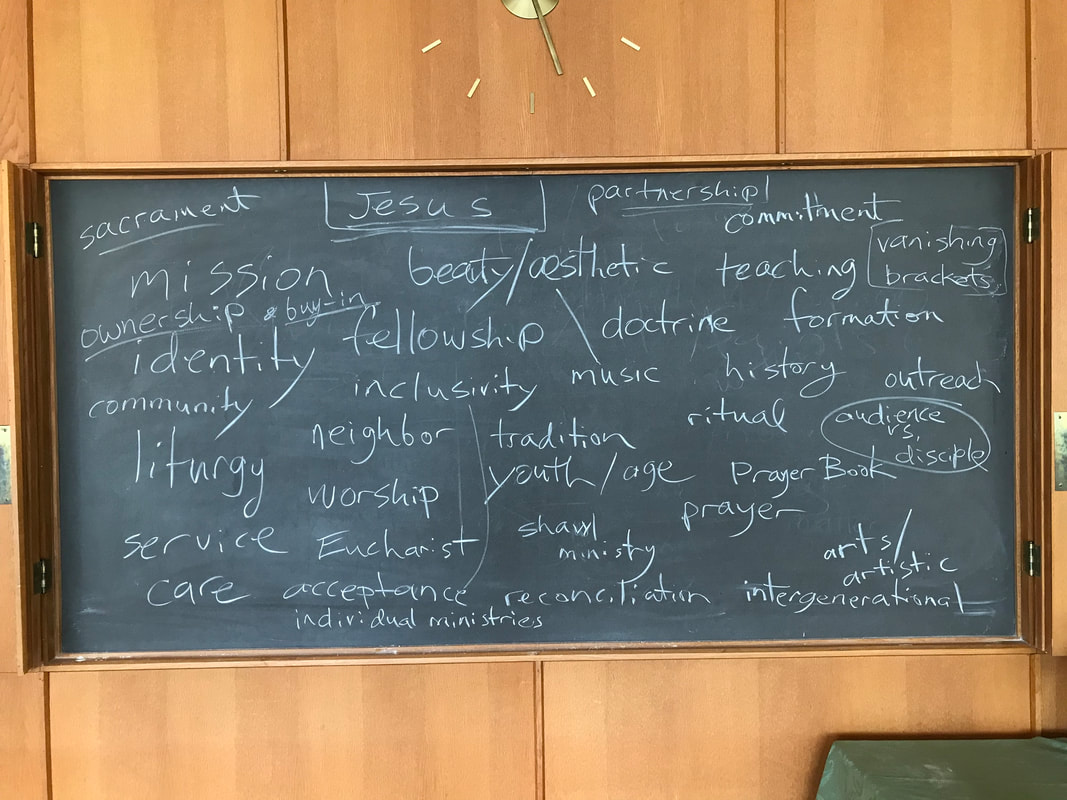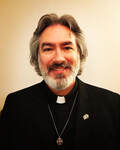 My dear friends in Christ, For the past several months, I’ve been asking you to support your Vestry and me with your continued prayers as we’ve set about the work of envisioning the future (both in the short term, and the long term) of our parish community, and of discerning what God is calling us to do … and more particularly, who God is calling us to be. I invited the Vestry into this process last spring with the questions:
It was a very useful way to start, it turns out, because we couldn’t really even begin visioning any future for All Saints until we first confronted all of the needs, desires, expectations, and even fears that each of us brings to the table when we start talking about “our” church. Of course, it isn’t our church at all; it is and ever has been God’s Church, and we are blessed and privileged to be invited and called to participate in the work that God is doing through God’s Church. Even so, every community, every organization, every group of people, whether secular or sacred, has its own unique collective identity, its own traits and characteristics, its own gifts and strengths, its own mission and purpose. Much of our discernment work this summer, then, has focused on exploring who we have been, as a worshipping community, who we are now, and who God is calling us to be, moving forward. In this so-called “post-Christian” age of our society, it is no longer viable simply to be “that church downtown.” (For one thing, here in Appleton, we’re “just one of those churches downtown”!) People no longer attend church merely because “that’s what ya do on a Sunday.” These days, if folks are going to make the effort to get out and be part of a church community, they want a community whose faith, whose perspective, whose way of being and doing “church” speaks specifically to who they are and what they need. People “shop” for a church home as carefully as they do for a physical home to buy. They want to know what is unique and special about us, what sets us apart and distinguishes us from other church communities in the area, and thus what it would mean for them, in their lives, to become part of our parish family. Gone are the days when simply being an Episcopal Church was enough to answer those questions. How, in what specific, concrete ways, does All Saints embody and express and celebrate and live out our understanding of the Christian faith in the Episcopal tradition as part of the worldwide Anglican Communion? Toward that end, the Vestry and I have discerned three factors, three particular expressions of identity, that we believe God is calling All Saints to embody, that we believe will best express our unique identity as a worship community, and that will speak clearly and concretely to the specific gifts that All Saints has to offer the people of Appleton and the Fox Valley. Here is what we believe All Saints ought to strive to be: * Theologically orthodox. We should be a church community that boldly proclaims Jesus Christ and the Salvation he brings through his life, death, and resurrection. We should be a people of faith who can say the Apostles' and Nicene Creeds without having to cross our fingers behind our backs. We need not be in uniform agreement about every little detail of the Christian faith—as Anglicans (see below), we should always welcome a range of doctrinal perspectives and interpretations; the basic, foundational tenets of the Christian faith and the Apostolic Tradition, however, we should not be ashamed to proclaim. * Unapologetically Anglican/Episcopal. We should be a worshipping community that celebrates the liturgies, traditions, and practices of the Episcopal Church and the worldwide Anglican Communion, being informed and formed by the Book of Common Prayer, with the Sacraments at the heart of our corporate worship. Sacramental worship and Common Prayer have always been the hallmarks of Anglican Christianity, and we should enthusiastically embrace that identity. That does not mean, of course, that we all must be “high church ritualists,” or that we have to have incense at every service (I mean Easter & Christmas would be nice, but … J). It simply means that we should lift up our liturgical styles of worship as very positive aspects of who we are, offering an alternative to other styles and formats of worship out there in the larger community. * Unequivocally welcoming, inclusive, and affirming. We should be a parish community that really means it when we say "The Episcopal Church welcomes you," whoever “you” are. That means being not only a truly safe, but also a truly inviting place for everyone, regardless of politics, race, economic and/or social status, etc. And it especially and particularly means being openly inclusive and affirming of LGBTQA+ folks (and making that official by following the diocesan procedure for doing so, and then including our identity as an affirming church in our parish communications, our website, our “branding”). Friends, my personal thinking on these three points of identity is multi-layered. Primarily, I believe that the above breakdown is pretty much required of us by Scripture, Tradition, and Reason as we have received the Faith from the Bible, from our Lord Jesus Christ, and from the Episcopal Church to which we belong. But beyond that, it's a question of finding and renewing and sustaining a source of vitality for our parish, which in my view requires us to develop a clear, concrete, and unambiguous understanding of who we are. Of immediate importance, of course, is our need not only to revitalize but also actually to grow this parish, drawing in people from the community even as we find more ways to serve the needs of the community around us. Living into the identity outlined above will, I truly believe, position us incredibly well to be attractive to, and of the greatest service to, the people of this area. If someone is truly seeking to know Jesus, and is yearning not for a mass-media, info-tainment approach to church but rather for an ancient, deeply rooted faith, with Mystery, ritual, and sacraments going back thousands of years, and is also looking for an inclusive and affirming community ... where in the Fox Valley can they go? My sense is that folks can have one or the other: either traditional, sacramental worship OR inclusion and affirmation. All Saints is uniquely positioned to be able to offer both to all. I fully believe that God is calling us to do just that. But we have a lot of work to do to process such a vision and to discern our way forward in response to God’s call. To that end, we’re going to spend time together studying Scripture, exploring our Episcopal/Anglican theology, sharing all of our individual perspectives, beliefs, views, needs, concerns, fears, expectations, etc., reinforcing our deep connections with each other in Christ, and building new relationships as we move towards the future together. Look for information to go out in the weeks to come inviting you all to participate in a series of small-group gatherings, which is how we will begin this exciting process. It is my personal goal to make sure that everyone feels welcome, everyone feels safe, everyone feels heard and valued, and everyone is a vital and valued part of this covenant community, this portion of the Body of Christ in Appleton. Some of these small groups will meet in person; others will meet via Zoom, so that everyone really does have a chance to participate and to feel safe doing so. If you have any thoughts, concerns, hopes, and/or fears about this next part of our journey together in Christ, please reach out to me by phone or email (or after a service), and let’s connect and explore what’s on your mind and on your heart. My friends, I am truly looking forward to this next chapter in our lives together. I am deeply grateful for your prayers and your support, and for the privilege of getting to be part of your parish family. And I am in awe of the faithfulness, diligence, intelligence, and wisdom of your Vestry ~ they are, individually and collectively, an outstanding group of leaders. Please continue to keep them, and me, and All Saints Church in your ongoing prayers. Peace & blessings, Christopher+ 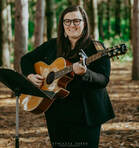 Greetings to all! LET’S CELEBRATE! has been postponed for the month of August. We are hoping to have this segment return in September. For those wishing to participate, please send in your moments of joy and celebration to Erin at [email protected] by Tuesday, September 27. FALL 2022 YOUTH MINISTRY SCHEDULE: Schedules and registration forms for Youth Ministry programs are now live on the Calendars page of the Youth Ministry website. They have also been sent out via the Youth Ministry Weekly Update email list. Please contact Erin to be added to this list. Re: Registration Forms: Please fill out only ONE Registration/Media Consent Form per family. It's important that I have accurate and up-to-date records on file. Parents can return forms either digitally via email or in-person at church. If there are any questions, please ask. Thank you! Sunday School (grades 4K-12) will be offered both in-person and virtually via Zoom beginning Sunday, September 11. Families are welcome to attend either depending on their given circumstances and/or comfort levels and do not need to commit specifically to one or the other. We will continue with the multi-age approach that we've been using since March 2020, as it has shown to be an effective learning model for the students who have been involved. This means that we will offer one class in-person and one class virtually for the time being. If our needs change, we will revise accordingly. Needed: 2-4 adults to teach (at least 2 per class); rotation schedule is an option Times & Location: Sundays, 9:30-10:15am, Undercroft/Kemper Hall (downstairs) & Zoom Youth Group (grades 5-12) will be offered in-person beginning Wednesday, September 14. We will retain the option to meet virtually if weather or other circumstances dictate otherwise. It is my hope that we will be able to return to offering regular service project opportunities for students, as well as activities/game nights with other local youth groups. Those opportunities will be announced soon. Needed: 1-2 other adults to assist for both practical and Safeguarding purposes. Times & Location: Wednesdays, 6:30-8:00pm, Undercroft/Kemper Hall (downstairs); Zoom if needed for weather or extenuating circumstances SAVE THE DATE: After a three year hiatus due to the pandemic, it’s thrilling to announce that the Diocesan Youth Fall Lock-In is set to return in 2022. This overnight retreat-type event is open to students who will be in grades 6-12 for the 2022-2023 academic year. This year’s Lock-In will be held November 18-20 at Waypost Camp (weekend before Thanksgiving). Space will be limited – stay tuned for more information. 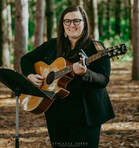 Greetings to all! FAMILY FUN NIGHTS will conclude next week Wednesday, August 24, albeit with a few modifications. Due to a variety of factors, we will no longer be having the parish potluck as originally scheduled. However, we will still gather at 6:30pm in the church for Holy Eucharist and a Blessing of the Backpacks. Students & educators alike are encouraged to bring their backpacks and/or parcels used for their educational journey for a blessing in preparation for the 2022-2023 academic year. LET’S CELEBRATE! has been postponed for the month of August. We are hoping to have this segment return in September. For those wishing to participate, please send in your moments of joy and celebration to Erin at [email protected] by Tuesday, September 27. FALL 2022 YOUTH MINISTRY SCHEDULE: Schedules for Youth Ministry programs, as well as 2022-2023 registration forms, for the Fall 2022 semester will be available in late August. Sunday School (grades 4K-12) will be offered both in-person and virtually via Zoom beginning Sunday, September 11. Families are welcome to attend either depending on their given circumstances and/or comfort levels and do not need to commit specifically to one or the other. We will continue with the multi-age approach that we've been using since March 2020, as it has shown to be an effective learning model for the students who have been involved. This means that we will offer one class in-person and one class virtually for the time being. If our needs change, we will revise accordingly. Needed: 2-4 adults to teach (at least 2 per class); rotation schedule is an option Times & Location: Sundays, 9:30-10:15am, Undercroft/Kemper Hall (downstairs) & Zoom Youth Group (grades 5-12) will be offered in-person beginning Wednesday, September 14. We will retain the option to meet virtually if weather or other circumstances dictate otherwise. It is my hope that we will be able to return to offering regular service project opportunities for students, as well as activities/game nights with other local youth groups. Those opportunities will be announced soon. Needed: 1-2 other adults to assist for both practical and Safeguarding purposes. Times & Location: Wednesdays, 6:30-8:00pm, Undercroft/Kemper Hall (downstairs); Zoom if needed for weather or extenuating circumstances SAVE THE DATE: After a three year hiatus due to the pandemic, it’s thrilling to announce that the Diocesan Youth Fall Lock-In is set to return in 2022. This overnight retreat-type event is open to students who will be in grades 6-12 for the 2022-2023 academic year. This year’s Lock-In will be held November 18-20 at Waypost Camp (weekend before Thanksgiving). Space will be limited – stay tuned for more information. 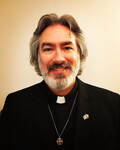 WHAT DO WE BELIEVE? … continued My dear friends in Christ, As we continue our exploration of our Episcopal Catechism (which begins on page 845 in the Book of Common Prayer), we come to a point that might seem a bit unexpected. In the preceding section, our Catechism introduced us to God the Father, the First Person of the indivisible Holy Trinity, and gave us some insight into the nature of the God who made us. We also looked at what the nature of our Creator implies about the cosmos and about us as God’s creations. Having introduced the concept of God as trinity in unity and unity in trinity, and having spoken specifically about the First Person of the Trinity, we might expect to turn next to the Second Person of the Trinity, yes? Our Catechism, however, now turns in a different direction to address the idea of covenant. If we take a look back at the last question and answer from the previous section, we can understand the need for this change of direction: Q. How was this revelation [regarding the nature of God] handed down to us? A. This revelation was handed down to us through a community created by a covenant with God. We know what we know about God because God has revealed Godself to us, not just individually but collectively, as a community. And “community” here is defined in a very specific way; it does not refer merely to a random assembly of human beings, lumped together. No, this community is one that has been created by means of God’s entering into a covenant relationship with the community of God’s people. Implicit in this definition is that one of the purposes—perhaps even the primary purpose—for which our community exists in the first place is to receive, preserve, and pass on to future generations the revelation of God to God’s people. That is no small responsibility! And the authors of our Catechism rightly recognized that, before we go any further, we need to be clear about what a covenant community actually is. To do that, we must understand what is meant by the term “covenant,” of course. From there, we will examine the original covenant God made with God’s people and what God has revealed about God’s will for us as God’s covenant community. Take note of the way our Catechism defines “covenant.” All too often in our contemporary world, we mistakenly think of a covenant as being essentially a contract. But a contract is a formal agreement between two or more parties that are, for all intents and purposes, more or less equal in power, status, authority, etc. But a covenant is not like that. The parties involved in a covenant are not equal, and they do not enter into the agreement from anything resembling a “level playing field.” It can be uncomfortable in our tradition to focus on the notion of power (I suspect because many of us have seen the ways in which unscrupulous people have, for centuries, misused and abused religious authority to exercise worldly power over others in extremely destructive ways). But when it comes to our relationship with God, we cannot ever forget that “the kingdom, and the power, and the glory” all belong exclusively to God and God alone. Any view that contradicts or undercuts that principle is, essentially, idolatry. The Old Covenant Q. What is meant by a covenant with God? A. A covenant is a relationship initiated by God, to which a body of people responds in faith. Q. What is the Old Covenant? A. The Old Covenant is the one given by God to the Hebrew people. Q. What did God promise them? A. God promised that they would be his people to bring all the nations of the world to him. Q. What response did God require from the chosen people? A. God required the chosen people to be faithful; to love justice, to do mercy, and to walk humbly with their God. Q. Where is this Old Covenant to be found? A. The covenant with the Hebrew people is to be found in the books which we call the Old Testament. Q. Where in the Old Testament is God's will for us shown most clearly? A. God's will for us is shown most clearly in the Ten Commandments. The Ten Commandments Q. What are the Ten Commandments? A. The Ten Commandments are the laws given to Moses and the people of Israel. Q. What do we learn from these commandments? A. We learn two things: our duty to God, and our duty to our neighbors. Q. What is our duty to God? A. Our duty is to believe and trust in God; I To love and obey God and to bring others to know him; II To put nothing in the place of God; III To show God respect in thought, word, and deed; IV And to set aside regular times for worship, prayer, and the study of God's ways. Q. What is our duty to our neighbors? A. Our duty to our neighbors is to love them as ourselves, and to do to other people as we wish them to do to us; V To love, honor, and help our parents and family; to honor those in authority, and to meet their just demands; VI To show respect for the life God has given us; to work and pray for peace; to bear no malice, prejudice, or hatred in our hearts; and to be kind to all the creatures of God; VII To use our bodily desires as God intended; VIII To be honest and fair in our dealings; to seek justice, freedom, and the necessities of life for all people; and to use our talents and possessions as ones who must answer for them to God; IX To speak the truth, and not to mislead others by our silence; X To resist temptations to envy, greed, and jealousy; to rejoice in other people's gifts and graces; and to do our duty for the love of God, who has called us into fellowship with him. Q. What is the purpose of the Ten Commandments? A. The Ten Commandments were given to define our relationship with God and our neighbors. Q. Since we do not fully obey them, are they useful at all? A. Since we do not fully obey them, we see more clearly our sin and our need for redemption. It has been said that righteousness can be defined as being in right relationship with God, and that justice can be defined as being in right relationship with one another. The original Covenant that God established with God’s people was never intended to be restrictive, punitive, or burdensome in any way. We often fall into the trap of thinking otherwise, I suspect because we project our own, human ideas about law (and our often painful experiences with human examples of law enforcement) onto our conception and perception of God and God’s law. But we must remember that the law was given to us by God as a precious gift, a gift designed by God to enable and empower us to live together in community lives that are truly free, healthy, whole, holy, and filled with abundance. Indeed, measured against that standard, it is frighteningly easy to see where we, as individuals and especially as communities, sin and fall short of the glory of God. We shall take a closer look at our sinfulness and our need for redemption next time. As always, if this column sparks any questions, concerns, ideas, curiosities, or any other kind of response in your hearts and minds, please reach out to me via email or phone—let’s talk about it! And if you’d like to explore these things in a safe and engaging group setting, please consider joining our Faith Talk formation series on Thursdays on Zoom. Peace & blessings, Christopher+ 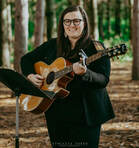 Greetings to all! FAMILY FUN NIGHTS continue TONIGHT, Wednesday, July 20. We’ll gather on the North Lawn at 6:30pm for a Prayer Walk around the neighborhood. Upon our return to church, we’ll enjoy cool treats on the lawn! Dress accordingly and bring your own water bottle. Mask optional outdoors, though still asking folks to mask indoors. Here's what we'll be up to for our remaining gatherings: Wednesday, August 10, 6:30-8:00pm: CHANGE IN PLANS – As Fr. Christopher will be on vacation, we’re switching up our plans a little bit to still provide an opportunity for Wednesday night worship. We will have interactive prayer stations in the church for folks of varying ages to engage with, and we will end our evening together with Compline from the Book of Common Prayer. As a precaution, we are asking participants to mask for this service, as we will include music with our Compline service. Wednesday, August 24 (times/details to be announced): Parish Potluck & Blessing of the Backpacks – Keep an eye out for sign-ups and more information! MISSION TRIP PRAYER REQUEST: Abby Wolf, a member of the All Saints Youth Group, is in Salyersville, Kentucky this week with a crew from around the diocese, sponsored by St. Thomas, Menasha. The crew is partnering with Appalachia Service Project to do house repair projects at local homes. Please continue to keep their team in your prayers. Thank you! LET’S CELEBRATE! Be sure to check out this month’s edition of "Let's Celebrate!" For those wishing to participate in August's edition, please send in your moments of joy and celebration to Erin at [email protected] by Tuesday, August 16. FALL 2022 YOUTH MINISTRY SCHEDULE: Schedules for varying Youth Ministry gatherings for the Fall 2022 semester will be available in August. Some events of note, including the Diocesan Youth Fall Lock-In (see below) are currently available on the Calendars page of the youth ministry website. More details to come – thank you for your patience! Sunday School classes will resume Sunday, September 11 from 9:30-10:15am, and based on feedback from families, we are planning to offer options both in-person & via Zoom. Youth Group gatherings will resume Wednesday, September 14 from 6:30-8:00pm, and based on feedback, are planning to gather in-person. SAVE THE DATE: After a three year hiatus due to the pandemic, it’s thrilling to announce that the Diocesan Youth Fall Lock-In is set to return in 2022. This overnight retreat-type event is open to students who will be in grades 6-12 for the 2022-2023 academic year. This year’s Lock-In will be held November 18-20 at Waypost Camp (weekend before Thanksgiving). Space will be limited – stay tuned for more information. 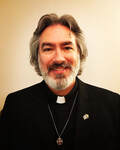 WHAT DO WE BELIEVE? Continued… My dear friends in Christ, Continuing our journey through our Episcopal Catechism (which begins on page 845 of the Book of Common Prayer), we move from human nature to the nature of the divine ~ the nature of God. As Christians, we (the Church) believe that there is one God whose nature we understand to be triune (three-fold). We speak, thus, of God the Father, God the Son, and God the Holy Spirit … yet we are not polytheists but monotheists. In keeping with the ancient Councils of the Universal Church (the Church before the split between East and West) which gave us the Apostles’ and Nicene Creeds, we affirm one, single God, existing as an eternal Trinity. In the words of the Athanasian Creed (the third creed in our BCP, found in the “Historical Documents” section): “. . . we worship one God in Trinity, and Trinity in Unity, neither confounding the Persons, nor dividing the Substance (p. 864). A few thoughts on gendered language, before we proceed further: the Catechism refers to the Persons of the Holy Trinity using the traditional terminology that derives directly from the Bible and has been established by centuries of use in Christian worship and practice. This usage may well be problematic for some Christians in the modern era; along with centuries of tradition, women have also experienced centuries of exclusion, exploitation, and abuse at the hands of men empowered by patriarchal power structures in many cultures where Christianity took hold ~ and often the Church itself has been the patriarchal power structure that enabled and even encouraged such toxic behavior. These historical facts must be acknowledged. Not everyone, moreover, has had positive, nurturing, healthy experience with human fathers in this mortal life, and that fact absolutely affects the impact of the term “father” in a religious context, no matter how hard we try to separate theology from individual experiences. We ought also to acknowledge the numerous examples in both Testaments of the Bible of feminine language, imagery, and terminology used for, of, and about God. Jesus even paints a picture of himself as a “mother hen,” spreading her wings over Jerusalem to gather God’s people to “her breast” like a “brood.” It’s important, likewise, to note that the Church Fathers and Mothers were adamant, in antiquity, that the use of the term “Father” for the First Person of the Trinity must only be understood in its relational sense, and that in no wise could any concept of gender be applied or ascribed to God. Lastly, our Lord Jesus Christ repeatedly refers to God as his “Father” (abba, in Aramaic; ho pater, in Greek). So whilst we have rich, biblical material from which to expand our vocabulary for talking about (and praying to) God, we can’t really ever get fully away from the so-called traditional terminology, either. That said, our Catechism introduces us to the First Person of the One, Undivided Godhead thus: God the Father Q. What do we learn about God as creator from the revelation to Israel? A. We learn that there is one God, the Father Almighty, creator of heaven and earth, of all that is, seen and unseen. Q. What does this mean? A. This means that the universe is good, that it is the work of a single loving God who creates, sustains, and directs it. Q. What does this mean about our place in the universe? A. It means that the world belongs to its creator; and that we are called to enjoy it and to care for it in accordance with God's purposes. Q. What does this mean about human life? A. It means that all people are worthy of respect and honor, because all are created in the image of God, and all can respond to the love of God. Q. How was this revelation handed down to us? A. This revelation was handed down to us through a community created by a covenant with God. Notice that there is a subtle but extremely significant point that is implied, rather than stated outright, in the first question and answer. The section is labeled with the heading “God the Father,” but the first question asks “What do we learn about God as creator …?” The substitution of “creator” for “father” might seem like mere poetic license; it might even seem like an error of sloppiness. But I contend that it is actually telling us something important about the First Person of the Holy Trinity: namely that “father,” in this usage, primarily means “creator.” That is not at all to say that the act of creating is solely or even primarily the provenance of the male gender (an absurd proposition!). It is, rather, to say again that the emphasis we are supposed to take from the term, and thus to associate with the First Person of the Trinity, is the nature of God as Creator, and the Will and Love and Intelligence by which and through which and because of which all of Creation comes into being and has reality and existence. We also learn from the first question and answer that we have this understanding of God because it was revealed by God directly to the people of Israel (into whose family we as Christians are adopted through the sacrament of Holy Baptism). Our understanding of God, then, comes not only from our own thinking and theorizing, our own attempts at theology and/or philosophy, but also (and primarily) from direct revelation as experienced by people just like us: God revealed Godself to God’s people. The revelation to Israel makes it clear that God created not only the entire Cosmos, but humanity in particular, out of sheer love. In that act of loving creation and even more loving sustaining, by which God made all things and keeps them (and us) in existence, we discover the basis for a proper understanding of who and what we are, and of our proper relationship to God, to God’s Creation, and to each other. Lastly, from this section of the Catechism, we learn that this ancient revelation has come down to us through the medium of community. It is in community that we first learn about God, and it is through community that we continue to experience God’s presence, grace, and power. That is not, of course, to deny that each of us individually has a personal relationship with our Creator ~ obviously, we do. But we do not experience God, relate to and with God, worship God, serve God, or seek after God alone, in the isolated vacuum of our own, individual, subjective experiences. We do all of those things as individuals living together in community. Our individual experiences inform and shape the community, and the community in turn informs and shapes our individual spiritual lives and journeys. In the Christian tradition (and in the Jewish tradition out of which Christianity arose), it has ever been so. God created community in order for us to receive, and then to guard, preserve, and transmit to future generations, God’s revelation of Godself. The very nature of God as revealed to us therefore calls us again and again into loving community with God and with each other. And the way that God does these things is through covenanting with us. What is a covenant? Excellent question ~ one that we’ll take up next time! As always, if this column sparks any questions, concerns, ideas, curiosities, or any other kind of response in your hearts and minds, please reach out to me via email or phone—let’s talk about it! And if you’d like to explore these things in a safe and engaging group setting, please consider joining our Faith Talk formation series on Thursdays on Zoom. Peace & blessings, Christopher+ 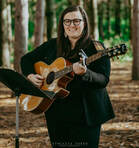 Greetings to all! EPISCOPAL DIOCESAN SUMMER CAMP (aka Episco Wisco Camp) has wrapped for 2022! Thank you to all the families and campers of All Saints who were able to participate this year and thank you to those who served as volunteer staffers! Thank you to everyone who held camp in your prayers - every little bit of support is greatly appreciated! Please be sure to ask our campers about their experience: Mallory, Jorden, Duncan, Abby, Elena, Emily, Martin, Fletcher, Charlie, and Jonah. FAMILY FUN NIGHTS will resume TONIGHT, Wednesday, July 6, and we are planning to again gather on the North Lawn from 6:30-8:00pm (rain location: Kemper Hall). Remember, we are mask optional outdoors presently, though still asking folks to mask indoors. Here's what we'll be up to for our remaining gatherings: Wednesday, July 6, 6:30-8:00pm: Creation Stations - As the wonderful fictitious science teacher Ms. Frizzle (from the Magic Schoolbus series) always said, "Take chances, make mistakes, and get messy!" There will be a selection of stations for participants to get creative in different ways - please dress in clothes that could potentially come home with a little extra on them, and BRING YOUR OWN WATER BOTTLES! Wednesday, July 20, 6:30-8:00pm: Prayer Walk & Cool Treats - Weather pending, we will take a walk as a group with sidewalk chalk and pray for our literal neighbors and community! We will enjoy cool treats upon our return. Wednesday, August 10, 6:30-8:00pm: Game Night 2.0 - Another night of silly games to keep us moving! Wednesday, August 24 (times/details to be announced): Parish Potluck & Blessing of the Backpacks – Keep an eye out for sign-ups and more information! MISSION TRIP PRAYER REQUEST: Abby Wolf, a member of the All Saints Youth Group, will be going on her first mission trip July 16-24 to Kentucky. She’s joining a crew going from around the diocese, sponsored by St. Thomas, Menasha, and they will be working with Appalachia Service Project to do house repair projects at local homes. Please keep Abby and the team in your prayers. Thank you! LET’S CELEBRATE! I hope y'all were able to catch the June edition of "Let's Celebrate!" For those wishing to participate in July's edition, please send in your moments of joy and celebration to Erin at [email protected] by Tuesday, July 19. Thank you! 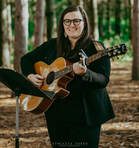 Greetings from Episcopal Diocesan Summer Camp! We covet your prayers for our campers & staff, as well as the staff at Waypost Camp, during our remaining time here. Campers: Mallory, Jorden, Duncan, Abby, Martin, Fletcher, Elena, Emily, Charlie, Jonah, Ann Staff: Brad, Mallory, Erin LET’S CELEBRATE: Please be sure to check out our latest segment of “Let’s Celebrate!” in the newsletter! FAMILY FUN NIGHTS: Dates for our remaining Family Fun Nights: July 6 & 20 and August 10 & 24 (we’re taking June off for Summer Camp). Activities for the events will be announced closer to the actual dates. The Episcopal Church, as part of the Anglican Communion and tradition, has historically emphasized our common worship as one of our most important defining characteristics. We do not, as a rule, require people to sign their names and give their formal assent to a long list of doctrinal statements in order to join our Church. Rather, we invite everyone to come pray and worship with us, for we pray our beliefs.
But that raises a crucial question: what exactly do we believe? It is fairly well known that, generally speaking, if you ask five Episcopalians to give their views on a particular theological topic, you’ll likely get seven or eight different answers. In many ways, that is a great strength of our tradition—we create room and space, within our fellowship, for a range of perspectives, interpretations, and beliefs. We have, over the years, focused so much on the idea that Anglicanism is a “big tent” that it sometimes surprises people, both inside and outside of The Episcopal Church, to discover that there are a few specific things that the Church claims and believes and teaches as being true. Although it’s not necessarily our defining characteristic, we do have doctrines; we even have a small handful of dogmas. The dogmas are pretty basic—Christianity 101, if you will. (There is one God known to us in Three Persons; Jesus Christ is God’s only Son, both fully human and fully divine; Jesus became incarnate in the flesh, lived and died as one of us, and was raised from the dead to save us and make atonement for our sins … basically the Apostles’ and Nicene Creeds—that’s our dogma.) Our doctrines are only slightly more involved. In many ways, our doctrines are simply interpretations of and commentaries on the Creeds. The Creeds are the distilled statements of what we believe; the Catechism explains how we hold, understand, and practice those beliefs. For the next several months, we’ll be taking a look at the various parts of the Catechism in order to explore what it is we, as a Church, actually believe. With that goal in mind, let’s begin at the beginning. From An Outline of the Faith, commonly called the Catechism (BCP 845 ff) Human Nature Q. What are we by nature? A. We are part of God's creation, made in the image of God. Q. What does it mean to be created in the image of God? A. It means that we are free to make choices: to love, to create, to reason, and to live in harmony with creation and with God. Q. Why then do we live apart from God and out of harmony with creation? A. From the beginning, human beings have misused their freedom and made wrong choices. Q. Why do we not use our freedom as we should? A. Because we rebel against God, and we put ourselves in the place of God. Q, What help is there for us? A. Our help is in God. Q. How did God first help us? A. God first helped us by revealing himself and his will, through nature and history, through many seers and saints, and especially the prophets of Israel. This first section of our catechism might seem a bit out of order. Why are we talking about human beings before we talk about God? But upon reflection, I think it makes the most sense to start here. How can we talk about our faith if we don’t first figure out who we are? Or, as Jesus says to Nicodemus in John 3: if I’ve told you about earthly things and you don’t understand, how can I tell you about heavenly things? So we begin by asking that most primordial of questions: who are we? And the most immediate answer is that we are creatures (creations) of God, not only part of God’s entire Creation but also especially created “in God’s image.” As the outline goes on to explain, that doesn’t mean that we look like God (ceilings of certain Italian chapels notwithstanding!). Being made in God’s image has little to do with appearance, because we’re not talking about something so superficial. We’re talking about nature, or better yet, essence. Who and what are we, on the inside? It is inside, in our essential natures, that we bear the stamp and imprint of our Creator. As the outline says, it is the fact that our natures reflect and bear the image of God’s nature that we are able to love, to be creative, to use reason. Perhaps most importantly, because our natures are images of God’s nature, we do have the capacity to live in harmony with God and each other. Why don’t we, then? The Catechism says that we have misused our freedom and made wrong choices. But that is, I think, the result, rather than the cause. What this part of the outline is telling us is that, as part of the inherent nature God gave us in creating us, we bear the gift and the curse of free will. This trait distinguishes humanity from the rest of the created order that we can observe. We are not animals, merely acting on instinct; we are not plants, growing according to environmental conditions; we are not minerals or chemical compounds, reacting mindless according to the laws of physics and chemistry. We have the capacity to love … but we don’t have to. We can create … but what we choose to create is up to us. We can choose to live in harmony … or we can choose to live in strife, conflict, and disharmony. And for so much of human history, we’ve chosen the latter. The last part of this first section of the Catechism offers us hope in the face of that history. God, our Creator, is neither neutral nor ambivalent towards God’s wayward creations. God loves us—always has, and always will. So God has never left us orphaned, has never merely abandoned us to our bad choices. God yearns after us and sends us help, specifically in the forms named in the outline. And that tells us something about the nature of God. Which is a good segue, because that’s the part of the Catechism we’ll be exploring next time! As always, if this column sparks any questions, concerns, ideas, curiosities, or any other kind of response in your hearts and minds, please reach out to me via email or phone—let’s talk about it! And if you’d like to explore these things in a safe and engaging group setting, please consider joining our Faith Talk formation series on Thursdays on Zoom. Peace & blessings, Christopher+ 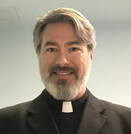 My dear friends in Christ, Last Sunday, I announced that we’d be making an adjustment to weekly practice: namely, that instead of alternating between using Rite I for both services one week and using Rite II for both services the next week, for the next little bit we’ll be using Rite I consistently for the 8:30 service and Rite II consistently for the 10:30 service. At the time, I did not provide any additional information about this change, so I’d like to correct that omission now and let y’all know “what’s up.” The decision to make this change had come from our brand new Worship Support Ministry Team, which had just met the previous Thursday. I wanted to update folks on the activities of this new ministry team as quickly as possible, partly to keep everyone informed, but also because we’ve been working hard to put together all of the various ministry teams I pitched the parish back in January at our Annual Meeting. So I wanted y’all to know about the progress we’re making towards getting these new ministry teams up and running. Worship Support had a productive and engaging initial meeting, and I think the work of this team will be good for us in both the short and the long term. Unfortunately, the docket for Pentecost Sunday was already overfilled not only with announcements, but with music and liturgy and a sermon that probably went on a little too long as it was, and a very important pause to recognize the gifts and extraordinary contributions of Matt K. and Carol J. to our music ministry and to the overall quality of our worship, as we’ve worked to recover from the worst of the pandemic shutdown. I didn’t go into any detail about the liturgical change because I was trying desperately to get everything in that needed to be gotten in ~ it was already a long service, and I didn't perceive that there was time for an in-depth explanation for the change, beyond mentioning that what we had been doing (alternating between both rites) was "experimental" from the beginning, and that there was an established practice of different rites for each service on Sunday, going back to before I got here. So, that raises the questions: why make this change? What’s the reasoning behind it? And is Fr. Christopher trying to blame the new ministry team, in case the change is unpopular? :p Well, no, to that last. To be clear, the responsibility and ultimately the blame for any aspect of our liturgy and worship must fall on me and me alone. According to the canons of the diocese (and of TEC), the rector or priest-in-charge is the “chief liturgist of the parish” and is the arbiter and overseer of all worship services within the parish. But even more to the point, I was the one who suggested the ministry team consider making this change. So much for blame; what about the thought process behind the change? There are several reasons for now experimenting (and this next phase will be every bit as experimental as alternating rites has been) with different rites for different services. For one, I have received some complaints about using Rite I at 10:30 ... and about using Rite II at 8:30. It's quite symmetrical, actually: as soon as I made the previous change, I immediately got complaints. As soon as I made this change, I immediately got complaints. And that’s perfectly okay in both cases, by the way! It’s the nature of living in community together with each other. In both cases, I have to say, the complaints have come from folks who care deeply and passionately not only about their own experiences in worshipping at All Saints, but also and I think even more so about the overall life and health and vitality of this parish (and The Episcopal Church on the whole). For my part, I find it deeply inspiring to see so many people taking their faith lives, and the faith of their church, so very seriously. I hope y'all really hear me when I say that, because I mean it with the utmost sincerity. So, yes, I've had complaints in both directions, both founded on solid, valid arguments & rationales. But that's not the only, or even the primary, reason for experimenting now with discrete rites for each service. One other reason is a concern about accessibility for newcomers who walk in off the street, largely without prior experience with liturgical worship at all, much less the long and rich heritage of the Anglican tradition. Even in the comparatively short time we've been reopened for in-person worship, we've actually had a number of visitors of just such backgrounds (or lack thereof), for whom this whole way of doing things is very new and strange, even in Rite II. Add in the beautiful but less-immediately-accessible language of Rite I, and the learning curve becomes steeper. Most of these visitors (though notably not all) have visited the 10:30 service. There have also been logistical concerns to arise from our experiment with alternating rites. It's made for more work during the already busy week, in terms of preparing bulletins for each service, because of having to shuffle back & forth between different templates every single week. Concerns have also been raised about the length of the 10:30 service, when Rite I liturgy is combined with service music, anthems, and hymns. (I'll add on a personal note that doing two Rite I services back to back does take more stamina on the part of the Celebrant than I'd anticipated, but that was *not* a factor in this decision! Just something I've noticed.) All that said, please let me offer all of you what I hope will be some assurances... First, as I said on Sunday and as I've said frequently in this letter, this change is just as experimental/temporary as the previous change was. We, collectively, are learning what works, and what works best, for us as a worshipping community. And I am still very much learning & getting to know this community, having lost nearly 2.5 years of time that I'd otherwise have spent doing just that. So, in my mind at least, nothing is etched in stone at this point. Any change we make must be made and held lightly, seen as experimental, and understood to be subject to further change subsequently. In other words, this change (no change, really) is "for all time"; rather, it is "for the time being." Second, I still want to integrate the two services more fully ~ or rather, the two communities that organize themselves around the two service times. My sense is that, before Covid, All Saints had been, in this regard, like many other Episcopal parishes, with two pretty distinct worshipping communities (the Early Folks and the Later Folks), with not a whole lot of overlap or cross-pollination happening between the two Sunday services. Getting these two groups to integrate a bit more with each other was one of the reasons for alternating rites week to week, to begin with. I’d be very curious to hear from y’all as to whether, and to what degree if at all, that has happened over the past several months. Third, I'm open to the idea of using Rite I for both services during specific seasons; I understand that that has been a practice here in times past. While I am reticent to use it for Lent and Advent (I'm aware that that's been done here before, and it's not an uncommon practice in our denomination), I am open to experimenting with that, too. I say I'm reticent only because I don't believe that Rite I is inherently "more penitential" than Rite II ~ I think that's a misreading of both rites, actually. (Yes, Rite I has the Prayer of Humble Access, but just look at all that stuff about sin and the need for a Redeemer in Prayers A, B, and C.) But again, I remain open to experimentation. Let's see what works, "boots on the ground," yes? Fourth, I have some more or less ambitious notions about what we might eventually be able to do with our Sunday mornings, especially if we do find ways to invite more new folks into our parish community. I would love, down the road, for instance, to have two full-blown, full-choir, fully-sung services each Sunday ~ one Rite I and one Rite II ~ and not have the Rite I service be relegated to a small, spoken service always. I think the opportunities that doing so would open up for us would be truly astonishing. I have some notions about those opportunities and possibilities, but I’ll save them for later columns … I don’t want anyone to get too worried just yet! :) Fifth, as I hope I've made clear with the above, Rite I is NOT going away or being removed from the liturgical practice of All Saints! Not on my watch. Lastly, I want all of you to know that the full range of Episcopal worship is dearly important to me, and it always will be. We are the inheritors of a glorious tradition, and I want to ensure that All Saints offers everybody as many ways to connect and engage with, and to experience first hand, our sacred tradition as possible. Yours always in Christ, Christopher+ 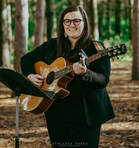 Greetings, families and friends of All Saints! EPISCOPAL DIOCESAN SUMMER CAMP, aka #EpiscoWiscoDisco2022, will be kicking off on Sunday, June 12! We covet your prayers for our campers & staff, as well as the staff at Waypost Camp, during the two weeks we will be there. All Saints will be sending 10 campers and 3 staff members with all four age groups represented. Please keep the following folks in your prayers: Campers: Mallory, Jorden, Duncan, Abby, Martin, Fletcher, Elena, Emily, Charlie, Jonah, Ann Staff: Brad, Mallory, Erin CAMP MAIL: Want to send campers and/or staffers some snail mail at camp? Allow 3-4 days for mail to arrive to Waypost. Contact the parish office for assistance as needed. Camper/Staffer Name Episcopal Diocesan Summer Camp c/o Waypost Camp 210608 Crooked Lake Dr. Hatley, WI 54440 LET’S CELEBRATE: Please send in your celebratory moments for the June edition of “Let’s Celebrate!” to Erin ([email protected]) by Sunday, June 19. FAMILY FUN NIGHTS: Here are dates for our remaining Family Fun Nights: July 6 & 20 and August 10 & 24 (we’re taking June off for Summer Camp). 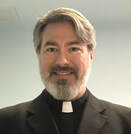 My dear friends in Christ, Maranatha. Come, Lord Jesus. Kyrie eléison. Lord, have mercy. Christe eléison. Christ, have mercy. Kyrie eléison. Lord, have mercy. Amen. This is not the column I intended to write for our newsletter today. Then, yesterday, Uvalde happened. What more can we say? There are no words to name the depths of violence, tragedy, and loss that, once again, darken our world. That, perhaps, have come to define our world. It is difficult not to yield to such a conclusion. Once again. That little phrase multiplies the horror of yesterday’s attack. For we now live in a society ~ and have for some long years now ~ in which, if I were to refer to “the mass shooting at that school,” you would have to ask me to clarify exactly which mass school shooting I was talking about. We have been accustomed for far too long to having to say “In the most recent school shooting…” After the unspeakable horror of the Sandy Hook massacre, things were supposed to change. Nothing has changed. So what more can we say? And yet … we cannot remain silent. No faithful follower of Jesus Christ can remain silent, inert, passive, in the face of such evil. But what, then, do we say? What, then, do we do? Last night, I saw a post on social media in which the commenter was demanding to know “CLERGY WHERE ARE YOU?” [all-caps in the original] and informing all priests and ministry leaders that “WE’RE ALL HURTING,” so “SPEAK TO US AND GIVE US COMFORT!” Of course, I cannot speak for all clergy and all ministers, but I can tell you where this priest is: I’m hurting, too. I’m terrified, also ~ for my own children, and for yours and everyone else’s. And I’m angry. I am angry beyond the capacity of the English language to communicate. Nineteen more children slain in Uvalde. Two more teachers killed. The worst school shooting since Sandy Hook. Sandy Hook was supposed to be the turning point. It was supposed to be the moment when things changed. When we decided to change things, so that these atrocities stop happening every other week. (We’ve had, what, upwards of 30 mass shootings thus far this year, alone?) So, yes, I’m angry. I’m angry that so many other things seem to be so much more important to so many other people in this society than making sure that the scariest thing our children have to face at school is a pop test. I’m angry that so many people seem to be so willing to throw hands up in the air and say, “Well, what’re ya gonna do? It is what it is. It’s not like it’s ever gonna change.” Well, why not? People used to say the same thing about slavery in this country, about Apartheid in South Africa, about the Berlin Wall and the Communist Bloc in Eastern Europe, etc., etc. But slavery ended, Apartheid was abolished and destroyed, the Berlin Wall came down. The question isn’t whether or not we can do anything to change this evil. The question isn’t whether we should ~ we are absolutely obligated and commanded so by Our Lord and Savior Jesus Christ as expressed in our Baptismal Covenant. The question, again, is not whether we can do anything. The question is: what are we going to do? 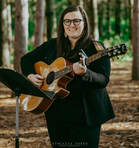 Greetings, families and friends of All Saints, Even as we are still in Eastertide, we have been reminded several times in the last two weeks that we still live in dangerous times. As such, I’d like to share excerpts of a Litany in the Wake of a Mass Shooting from “Bishops Against Gun Violence”, as shared by Bishop Doug Sparks of the Episcopal Diocese of Northern Indiana. Let us pray… God of peace, we remember all those who have died in incidents of mass gun violence in this nation’s public and private places… Eleven dead in Sacramento, California; Ten dead at a supermarket in Buffalo, New York; Twenty-one dead at an elementary school in Uvalde, Texas. Give to the departed eternal rest. Let light perpetual shine upon them … For survivors of gun violence. Grant them comfort and healing. Hear us, Lord. For those who have lost loved ones to gun violence. Grant them peace. Hear us, Lord. For those first responders who care for victims of gun violence. Protect and strengthen them. Hear us, Lord. Lord, have mercy. Christ, have mercy. Lord, have mercy. FAMILY FUN NIGHTS: TONIGHT, we are continuing our Family Fun Nights for the month of May. Future dates: July 6 & 20 and August 10 & 24 (taking June off for Summer Camp). TONIGHT, May 25: Camp Night – We will meet from 6:30-8:00pm in Kemper Hall. Please wear masks and bring your own water bottle – snacks will be provided. Prayer, fellowship, crafts, and more – open to all ages. SUMMER CAMP CAMPER REGISTRATION is still open, and we have suspended late fees through Memorial Day weekend! Head to diofdl.org/camp. Anyone needing scholarship assistance should contact either Fr. Christopher or our parish treasurer, Tina Wilfer. CAMP 2022 Dates: All sessions will be held at Waypost Camp in Hatley, WI. Senior (completed grades 9-12): June 12-18, 2022 Middler (completed grades 6-8): June 19-23, 2022 Junior (completed grades 2-5): June 19-23, 2022 Kinder Camp (ages 4-7 & adult): June 23-25, 2022 CAMP MAIL: Want to send your camper(s) and/or staffer(s) some snail mail at camp? Camper/Staffer Name Episcopal Diocesan Summer Camp c/o Waypost Camp 210608 Crooked Lake Dr. Hatley, WI 54440 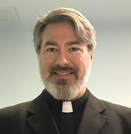 My dear friends in Christ, Alleluia, Christ is risen! The Lord is risen, indeed! Alleluia! Happy Easter, y’all! The Great Fifty Days continues, and I hope that this Eastertide has brought you all many blessings and at least a little peace in the midst of these continually “interesting” times in which we live. I hope that you all were able to connect in some way or another with at least some of our Easter liturgies, and that you experienced our shared worship to be as comforting, as rejuvenating, as inspiring as I did. If so, then ALLELUIA, indeed! It’s “been a minute,” as we say down South, since I had a chance to connect with y’all via this Newsletter column. My apologies! The first part of the calendar year, from a church & ministry perspective, always seems to be pretty intense. We come off the high of the twelve days of Christmas, and we immediately encounter the Feast of the Epiphany. For us, just after Epiphany comes our annual parish meeting. From there, it’s never very long until Ash Wednesday and the Lenten season which brings its own particular kind of spiritual intensity to all the other intensities we already have been experiencing. Then, before you know it, it’s Holy Week, and then Easter, and it hain’t gwine be (oh, excuse me ~ that’s Southern for “it is not going to be”) long at all before we’re at Pentecost and are celebrating the birthday of God’s one, holy, catholic, and apostolic Church! Whew! So in the midst of all that ~ not to mention the complex lives we’re all leading and the intricate web of relationships that tie us all together as a parish family ~ it’s good to pause for a moment and reconnect. And before too long, we will have more tangible ways to do just that. There’s already a team of folks planning and organizing a renewed coffee hour for Sunday mornings, to be held outdoors to take advantage of the long-awaited change in the weather and allow us to fellowship more safely, even as the Covid pandemic still refuses to set us completely free. Our Youth Minister, Erin Wolf, is already planning a number of parish events to bring us together over the summer. And I will continue to expand our mid-week worship offerings, continuing (and growing) our Wednesday evening healing Eucharist and also (very soon) adding a Tuesday morning Eucharist, as well. It’s an exciting time for All Saints. If you feel the Spirit moving you perhaps to get more directly involved in this renewing and reinvigorating of our parish life, please reach out to me, directly, or contact the church office ~ several existing Ministry Teams would love to have your ideas, energy, enthusiasm, and service … and there are a number of Ministry Teams that don’t exist yet but very much need to! There are more ways than ever to get involved now, so let’s do it, y’all! Here’s to a blessed and beautiful summer ahead. Peace & blessings to you all, C+ 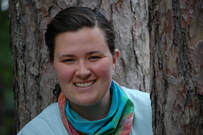 Happy Easter (yes, we’re still in Eastertide)! YOUTH FELLOWSHIP: We are still offering 30 minutes of free time following the 10:30am service. As the weather allows, we may move outside to the North Lawn. When inside, though, we ask those ages 3 and up to please continue masking until parish leadership advises otherwise. FAMILY FUN NIGHTS: TONIGHT, we are kicking off Family Fun Nights for the parish for the months of May, July, and August (taking June off for Summer Camp). May Schedule: Tonight, May 11: Game Night – We will meet 6:30-8:00pm on the North Lawn for games, cool treats, and prayer. Holy Eucharist will also be offered inside with Fr. Christopher for anyone wishing to participate that way. Wednesday, May 25: Camp Night – We will meet from 6:30-8:00pm (North Lawn for nice weather, Kemper Hall if too wet) for camp crafts, silly songs, treats, prayer, and more. Holy Eucharist will also be offered inside with Fr. Christopher. CELEBRATION SUNDAY: We will be celebrating both Youth Ministry partners and high school and college graduates this Sunday, May 15 at the 10:30am service. Graduate names and “next steps” will be shared in the next newsletter. LET’S CELEBRATE! For our second edition of this new segment, we’d love to hear moments folks are celebrating in this Eastertide! For those wishing to contribute a story or two, please send to Erin Wolf at [email protected] by Sunday, May 22. Thank you! SUMMER CAMP CAMPER REGISTRATION is still open, though you only have until Friday, May 13 to sign-up for the lowest prices! Head to diofdl.org/camp. Anyone needing scholarship assistance should contact either Tina Wilfer or Fr. Christopher. SUMMER CAMP STAFF APPLICATIONS: For those interested in serving on Camp Staff, you must be at least a current high school freshman or older and complete a Volunteer Staff Application at diofdl.org/campstaff. CAMP 2022 Dates: All sessions will be held at Waypost Camp in Hatley, WI. Senior (completed grades 9-12): June 12-18, 2022 Middler (completed grades 6-8): June 19-23, 2022 Junior (completed grades 2-5): June 19-23, 2022 Kinder Camp (ages 4-7 & adult): June 23-25, 2022 CAMP MAIL: Want to send your camper(s) and/or staffer(s) some snail mail at camp? Camper/Staffer Name Episcopal Diocesan Summer Camp c/o Waypost Camp 210608 Crooked Lake Dr. Hatley, WI 54440 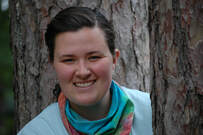 A blessed Eastertide to families and friends of All Saints! YOUTH GROUP will have their final formal gathering for the 2021-2022 academic year. We will meet in Kemper Hall from 6:30-8:00pm. *Please continue to mask and bring your own water bottle until parish leadership advises otherwise. SUNDAY SCHOOL had their final formal gathering this past Sunday, April 24. Thank you to those families who were able to attend and who made our Zoom gatherings such a great experience! YOUTH FELLOWSHIP: We are still offering 30 minutes of free time in Kemper Hall following the 10:30am service to kids present for worship. For those ages 3 and up, please continue to mask until parish leadership advises otherwise. FAMILY FUN NIGHTS: We are looking to offer some informal Family Fun Nights for the parish in the months of May, July, and August (taking June off for Episcopal Diocesan Summer Camp). Stay tuned for more details! CELEBRATION SUNDAY: We will be celebrating both Youth Ministry partners and high school and college graduates on Sunday, May 15 at the 10:30am service. If you and/or your student has graduated (or will graduate) within the 2021-2022 academic year, we'd love to include them! Please contact Erin Wolf for more information. LET’S CELEBRATE! Please be sure to check out our very first edition of the “Let’s Celebrate” segment of the newsletter! This month’s collection features things that members of All Saints celebrated and/or are celebrating through the Lenten season and the start of the Easter season. For those wishing to contribute moments they’d like to share, send your stories to Erin Wolf at [email protected] anytime. The deadline for May’s edition is Sunday, May 22. SUMMER CAMP CAMPER REGISTRATION is OPEN!!! Head to diofdl.org/camp for more details & sign-up. Anyone needing scholarship assistance should contact either Fr. Christopher or Erin. Cost should not be a reason to miss camp! SUMMER CAMP STAFF APPLICATIONS: For those interested in serving on Camp Staff, you must be at least a current high school freshman or older and complete a Volunteer Staff Application. Applications are now LIVE at diofdl.org/campstaff. CAMP 2022 Dates: All sessions will be held at Waypost Camp in Hatley, WI. Senior (completed grades 9-12): June 12-18, 2022 Middler (completed grades 6-8): June 19-23, 2022 Junior (completed grades 2-5): June 19-23, 2022 Kinder Camp (ages 4-7 & adult): June 23-25, 2022 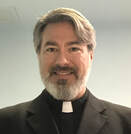 My Dear Friends in Christ, Alleluia! Christ is risen! The Lord is risen, indeed! Alleluia! Happy Eastertide to you all! Well, I suppose that technically that’s a tad premature. We’re at the moment in the midst of Holy Week. Even so, as the bearers of Christ and as the embodiment of two thousand years’ worth of witness to the resurrection of Jesus, we know that the victory is already won! That it has been won for all time by the One who lived and died and rose again for us. The past few days have offered us a welcome respite from what has been, thus far, a rather windy, chilly, rainy, and ~ just to make sure I don’t forget that it’s Wisconsin ~ snowy springtime. Bright sun, blue skies, temperate weather … even when the next snow hits, which it is sure to do at least once more before finally receding for spring & summer, I will remember feeling, in a day like this, the promise of new life to come. And it will. It is absolutely inevitable. That fact is as true for the changing of the earthly seasons as it is for the eternal promise of God Almighty that, having died with Christ in our baptism, we are raised to new life with him in his resurrection. This time last year, I was reflecting on where we were, as a parish, after “13 months of Coronatide.” Guess we need to update that to read “the first 13 months of Coronatide,” huh? I went on to write: “Indeed, in many ways, it still feels like Lent began in March of 2020 and still hasn’t quite ended. The pandemic is still with us, and it will take time, perhaps years, to recover fully. Even then, things will never be quite the same as they were before.” Unfortunately, that observation continues to hit very close to home, even another year further along. But so does the next thing I wrote last year: “And yet … “And yet there is light. There is hope.” We’ve come a long way from our first Easter Sunday together, when I packed up my ancient MacBook Pro laptop (vintage 2013 technology!), drove over to the empty church building, set up my computer on a stack of prayer books on the altar, and livestreamed a service of Spiritual Communion in celebration of the holiest day in the Christian year … mainly because I couldn’t stand the thought of trying to livestream anything for Easter from my dining room table at home. It just didn’t feel right. Truth be told, our celebrations this year may still not feel entirely right. Covid, after all, is still with us, requiring us to continue to modify our shared worship in order to mitigate as much risk as we can. But we are together, both online and in person. We are singing together again, as a congregation. And, as of Easter, I’m delighted to announce that we will once again have the option of sharing the common cup as part of our celebration of Holy Eucharist. Yes, the wine is coming back! Of course, it will be optional ~ no one who is uncomfortable with the small but not non-existent bit of extra risk will need to drink from the cup. Remember that for nearly two millennia, the Church has understood that the blood is inherent in the flesh, so that to receive only the bread in Communion is to receive Communion fully. But for those who wish to drink, the cup will be available, at last, this Easter. And so life returns, in ways small and great. Life in Christ is renewed, rekindled, reborn, as Creation itself is made anew through the Mystery of the Cross, by the life, death, and resurrection of our Lord and Savior, Jesus Christ. What that means for All Saints Church, as indeed what it will mean for each one of us in our individual lives and spiritual journeys, will unfold before us over the coming weeks, months, and years. This time last year, it was difficult for me to imagine that we would be where we are now, this Easter. I don’t know what awaits us over the next horizon, but I feel renewed and re-energized … and I hope y’all are as eager as I am to see where our Risen Lord will lead us next! Have a happy and most blessed Easter this year, y’all! God has blessed us richly, for the Lord is risen, indeed. Alleluia! Christopher+ 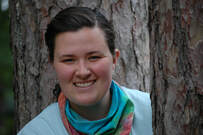 Greetings, families & friends of All Saints! YOUTH GROUP Schedule for the rest of the program year: TONIGHT, April 13 – No gathering – Holy Week/Easter Break Wednesday, April 20 – Gathering in Kemper Hall, 6:30-8:00pm Wednesday, April 27 – Final Gathering for the program year, 6:30-8:00pm *Please continue to mask and bring your own water bottle until parish leadership advises otherwise. SUNDAY SCHOOL Schedule for the rest of the program year: Sunday, April 17 – No Gathering – Easter Sunday Sunday, April 24 – Final Gathering for the program year via Zoom, 9:30-10:00am We will continue to offer 30 minutes of free time in Kemper Hall following the 10:30am service to kids present for worship. For those ages 3 and up, please continue to mask until parish leadership advises otherwise. EASTER EGG HUNT RETURNS! The Easter Egg Hunt will be for all students grades 4 and younger following the 10:30am service on Easter Sunday, April 17. All students in grades 5 and older are welcome to assist through Youth Group. If weather is amicable, we will be outside on the North Lawn (mask optional with some distancing). If weather is less friendly, we will be in the Undercroft, masks required for all ages 3 & up. LET’S CELEBRATE! Beginning in the Easter season (late April), we will start to include a new segment in the newsletter called, “Let’s Celebrate!” Our first edition (on or around April 27) will highlight joyful news that happened during the Lenten season (because joy shows up even in our penitent and contemplative times). Sunday School & Youth Group students are already sharing some great moments, and remember: ALL AGES are welcome & encouraged to participate! You can start sending your stories in to Erin Wolf at [email protected] anytime, and the deadline for the first edition will be Sunday, April 24. Summer Camp camper registration is now OPEN for 2022 sessions! Head to diofdl.org/camp for more info. Staff Applications are also OPEN at diofdl.org/campstaff. CAMP 2022 Dates: All sessions will be held at Waypost Camp in Hatley, WI. Senior (completed grades 9-12): June 12-18, 2022 Middler (completed grades 6-8) Junior (completed grades 2-5): June 19-23, 2022 Kinder Camp (ages 4-7 & adult): June 23-25, 2022 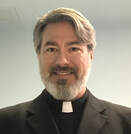 My dear friends in Christ, As y’all know, with the beginning of Lent this year, we have added a service of Holy Eucharist with healing on Wednesday evenings at 6:30, with an opportunity for anyone who wants to make an individual confession to do so in the hour beforehand. These services have, thus far, been small, quiet, contemplative, and ~ as far as I can tell ~ especially meaningful to the folks who’ve been able to come out and take part. Thanks to all of you who’ve helped us get this new worship time going … and for those who haven’t come by yet to check it out, here is your renewed invitation to do so, if you’re able. There has, however, been some confusion about the new service, and so I wanted to offer a few words of clarification in this week’s newsletter, in hopes of clearing things up a bit. So, the question I’ve heard the most over the past few weeks is: “Why did you replace the Wednesday morning service we used to have with an evening service that the folks who used to come on Wednesday mornings cannot attend?” Well, the short answer is: “We didn’t.” Please forgive me … I do not in any way intend that answer to sound flippant or dismissive. But it is important, I think, to be clear that the evening service that we’ve added this Lent was never, ever intended to be a “replacement” for the morning service that we used to hold in the chapel prior to the Covid pandemic and shutdown. Replacing that service was never, ever the purpose of adding the service we’ve recently added. The new Lenten service was added because I was going to be here at that time, anyway, in case anyone wanted me to hear a Confession (a wonderful Lenten practice, by the way!), because it wasn’t going to require any extra work from anybody else but me, and because between the ongoing Covid situation, the ongoing strife in our society and in our lives, and the now-ongoing violence and open warfare in our world, a little extra healing during Lent is especially appropriate. The added benefit of the service time’s coinciding with the in-person weekly meeting of our Youth Group was exactly that ~ an added benefit, ensuring that there are enough adults in the building whilst children are present to satisfy our Safe Church requirements. Plus, an invitation to Eucharist is an incredible gift to be able to offer to someone who has just been through the Rite of the Reconciliation of a Penitent. Again, there was never the least thought of “replacing” the pre-Covid morning service with an evening one “instead.” In hindsight, however, it is very easy to understand why a number of folks thought otherwise. After all, the new services began at the same time that the morning livestream of Spiritual Communion on Wednesdays went away. But that wasn’t because the one replaced the other. It was simply because, with the extra time commitment required on Wednesday evenings, I had to let the Wednesday morning livestream service go. A tough call to make, but when we’ve only got one priest, we sometimes have to make choices like that. (The best I had been able to tell, not that many people had been tuning in to those Wednesday livestreams ~ although since I stopped doing them, I have had to wonder if perhaps a lot more people were tuning in than were showing up either in the comments or the Facebook metrics that I could see.) So since I stopped the Spiritual Communion service in the morning at the same time as I started the evening Lenten service, it’s easy to see why it seemed as though the latter was designed to “replace” the former. It wasn’t ~ I just wasn’t able to do both in the same day. That was the initial thinking behind the recent schedule changes. I do sincerely apologize for not doing a better job of sharing all of that information with all of you more clearly and more thoroughly beforehand. I could have done much better about that ~ and I should have. It likely would have cut down on some of the confusion. Another objection I’ve heard lately to the Wednesday evening service is that it’s a problem to have the service in the evening because many of the folks who used to attend the previous Wednesday morning service either can’t or don’t go out in the evenings at all. This objection is also based on the idea that the new evening service was meant to be a replacement for the old morning service, which it wasn’t. But it also raises a separate point that I think we all ought to think about: There are some folks who are part of our parish family who cannot attend evening services. We cannot ever forget that fact. We have to make sure that we make worship available to everybody in the parish, one way or the other. Let’s not ever forget that fact. But let’s also consider the fact that there are folks who are part of our parish family who cannot attend mid-week services in the morning or at noon. So we’ve also got to make such worship available to these folks, as well. We must not forget that fact, either. Now, here’s the really tricky question: which group is more important to All Saints? Well, “tricky” isn’t really the right word. I should rather say: “here’s the trick question…” Because it is a trick question: Which group is more important to our parish? The answer is a resounding “yes!” The goal is, and always has been, to get to a point where we’ve got two mid-week Eucharist services going every week ~ one in the morning and, on a different day, one in the evening. (And eventually, we will need to arrange to have both of those services livestreamed, as well.) Unfortunately, again with just the one priest here, the process of reopening and moving towards a post-Covid “new normal” (including adding extra services like these) has to be a matter of increments, baby steps, rather than our being able to do everything all at once. For the reasons I mentioned above, it made sense to add the evening service when we did. That does not mean that the morning service isn’t important, or that the people who would attend a morning service don’t matter. Everybody here matters! As soon as I’m able to add a morning service, we’ll get one up and running. My hope is to get one going later in the spring or over the summer, so that both services are well established by the time our fall program year gears up to start in September. So stay tuned for more news and announcements about that in the hopefully-not-too-distant future! And thank you for everything y’all do to support our shared worship at All Saints. In the meantime, please do continue to contact me directly with any questions, concerns, fears, hopes, delights, or any other sorts of thoughts and feelings you have ~ let me know what’s on your minds and on your hearts. Peace & blessings, Christopher+ What is Church? … to me? … for me? … without me?
Recently, the Vestry and I met together on a Saturday for a retreat, the purpose of which was to begin a process of discernment and visioning that will continue throughout this year and beyond. With a little bit of luck, and a lot of grace from God, All Saints will continue to move towards a post-Covid “new normal,” and now is the time to be asking what that will mean for us as a parish community. To be asking: what will All Saints be in the next three years, five years, ten years, twenty years? And to be listening faithfully and prayerfully for God’s answers to those questions. It’s an exciting time, to be sure! Especially on the heels of two-plus years of pandemic shutdown, when we’ve had to focus almost exclusively on what we couldn’t do. And when we’ve had to work so hard just to hold onto the present and preserve as much as we could of our past. Now, at last, we get to begin looking ahead, towards what’s to come, towards what we might become. Towards what God has in mind for our future. Exciting, indeed! Folks, I’m happy to report that your Vestry is dedicated to this discernment process, is motivated by a deep love for God and for All Saints Church and you, its people, and is filled with fantastic ideas and great energy for moving All Saints enthusiastically into the next chapter of our lives together in our shared walk with God. The whole retreat was incredibly inspiring to me, and I am eager to continue this work of discernment, not only with our Vestry folk, but also with all of you. I have to say, it feels wonderful to be looking ahead. As a way of bringing us all to a common foundation and starting point, one of the questions I posed at the retreat was: “What is church?” We filled and erased and refilled several chalkboards’ worth of ideas from our brainstorming in response to such a seemingly simple question. I’m attaching a photo as a small taste of just one tiny piece of those conversations, to give you a sense of what it was like. But my main reason for mentioning this part of our retreat to you is to invite you all to explore this same question, both for yourselves individually and also in conversation with your fellow parishioners. What do you say church is? As the Vestry and I explored that question, we discovered something that I’d like to share with you all. In asking the question over and over again, we realized that, at different times, we actually heard different questions, even though the words didn’t change. Sometimes, we heard “What is church … to me?” Sometimes, it was “What is church … for me?” And at times, it was even “What is church … without me?” I draw your attention particularly to that last question, because it’s one we absolutely need to face together. Intellectually, we all realize that growth means change. Emotionally, however, we usually experience some sense of fear at the prospect of change. That can be true even if, at the very same time, we also feel excited about the opportunities! This fear can be even more powerful when it comes up in a parish setting. Why is that? I suspect it’s because we all, at one time or another, have likely worried about whether or not there is, or there will be, truly a place and a home for us in a shifting and changing parish community. “I’m all for growth and trying new things,” we might say, “but what about the things that I need from my church, to feed my soul?” It’s a very important question. One that we need, I believe, to explore together as a church family. Because we probably will not all answer that question exactly the same way. That’s perfectly natural ~ we don’t all need exactly the same things. But we need to be able to name the things we need … and we need to be able to talk about such things with each other (and to feel safe enough in our community to do so). Because on the one hand, if we can’t figure out what we need and what our fellow parishioners need, it’s going to be hard to build a thriving future for our parish where we all feel truly nourished by our shared church. That would make evangelism tough, because “you can’t share what you don’t have,” and if we’re going to invite people to our church, it would be good to have an uplifting answer when they reply, “But why should I come to your church?” And on the other hand, if we can and do experience our needs being met here in the abundance of God’s grace, then we will feel freed and empowered to go out and see to the needs of the people in the communities around us ~ which is the work of the Gospel. So, what is church, to you? What is church, for you? What do you fear might become church, without you? And perhaps most importantly, how does church transform you, empower you, equip you, and send you out into the world to seek and serve Christ in others? 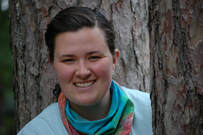 Greetings, families & friends of All Saints! YOUTH GROUP Schedule for the rest of the program year: TONIGHT, March 30 – No gathering – Spring Break Wednesday, April 6 – Gathering in Kemper Hall, 6:30-8:00pm Wednesday, April 13 – No gathering – Holy Week/Easter Break Wednesday, April 20 – Gathering in Kemper Hall, 6:30-8:00pm Wednesday, April 27 – Final Gathering for the program year, 6:30-8:00pm *Please continue to mask and bring your own water bottle until parish leadership advises otherwise. SUNDAY SCHOOL Schedule for the rest of the program year: Sunday, April 3 – Gathering via Zoom, 9:30-10:00am Sunday, April 10 – Gathering via Zoom, 9:30-10:00am – Palm Sunday Sunday, April 17 – No Gathering – Easter Sunday Sunday, April 24 – Final Gathering for the program year via Zoom, 9:30-10:00am We will continue to offer 30 minutes of free time in Kemper Hall following the 10:30am service to kids present for worship. For those ages 3 and up, please continue to mask until parish leadership advises otherwise. EASTER EGG HUNT RETURNS! The Easter Egg Hunt will be for all students grades 4 and younger following the 10:30am service on Easter Sunday, April 17. All students in grades 5 and older are welcome to assist through Youth Group. If weather is amicable, we will be outside on the North Lawn (mask optional with some distancing). If weather is less friendly, we will be in the Undercroft, masks required for all ages 3 & up. LET’S CELEBRATE! Beginning in the Easter season (late April), we will start to include a new segment in the newsletter called, “Let’s Celebrate!” Our first edition (on or around April 27) will highlight joyful news that happened during the Lenten season (because joy shows up even in our penitent and contemplative times). Sunday School & Youth Group students are already sharing some great moments, and remember: ALL AGES are welcome & encouraged to participate! You can start sending your stories in to Erin Wolf at [email protected] anytime, and the deadline for the first edition will be Sunday, April 24. CAMP 2022 Dates: All sessions will be held at Waypost Camp in Hatley, WI. Senior (completed grades 9-12): June 12-18, 2022 Middler (completed grades 6-8) Junior (completed grades 2-5): June 19-23, 2022 Kinder Camp (ages 4-7 & adult): June 23-25, 2022 Camper Registration is now OPEN for 2022 sessions! Head to diofdl.org/camp for more info. Staff Applications are also OPEN at diofdl.org/campstaff. For all other questions, please contact Erin “Erni” Wolf, Camp Director, at [email protected]. 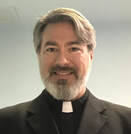 UPDATE TO ALL SAINTS COVID POLICIES as of 15 MARCH 2022 My dear friends in Christ, Little did we know, at this point two years ago, that we had just experienced our last normal week. It was the middle of March, 2020, when the worldwide Covid-19 pandemic came to Appleton. In those early days, there were no vaccines and no hope of developing usable vaccines for more than a year, at the soonest. Between that fact, and the fact that large portions of our society (both within and beyond the Church) openly opposed some or all of the protocols recommended by experts in the science of infectious disease control in order to contain (or at least slow down) the spread of the virus, and given the risks especially to the most vulnerable members of our community (children, the elderly, the chronically ill, the immuno-compromised), the institution of the church had no choice but to take the burden upon itself to craft policies to protect everybody. We were forced to shut down all in-person worship and gatherings at All Saints, closing our treasured church building for, at the time, the foreseeable future. To say that doing so was hard would, of course, be the understatement of the decade. But nothing stays the same forever. On Palm Sunday of 2021, we were able to return to in-person worship, albeit under a number of restrictions and regulations, some set by the Diocese of Fond du Lac, and others that we set for ourselves. Both the diocese and our local parish have, since the outbreak of the pandemic, sought to be guided in our responses and policies by the best available data and the consensus of the scientific community. Recently, both the CDC and the Diocesan Task Force on Covid-19 have updated their recommendations. In response, your Vestry and I have spent the past two weeks in close conversation, exploring whether it might be time for us to revise our policies for All Saints, as well … and, if so, in what ways. Since the beginning of “Corona-tide,” we have taken a cautious and conservative approach to Covid safety policies, and we shall continue to do so, going forward. The Covid pandemic, after all, is most certainly not over. At this point, however, I believe we can make the following small adjustments to our Covid protocols. As of now ~ and for the time being, presuming that current trends in the data continue:
We are also fully committed to expanding our online/hybrid offerings until we reach the goal of simultaneously live-streaming any and all services that we hold in-person. In other words, we will work to provide as many options and alternatives as possible for folks to engage not only with our worship but also with our community of faith in ways that feel comfortable, welcoming, inclusive, and safe. Finally, we must continue for now to distribute Communion only in one kind (bread). At present, the diocese does not allow the sharing of the common cup, so we don’t have any choice on this one for the time being, y’all. Please understand that these policies are, as they always have been, provisional. As the situation around us continues to change and evolve, we will continue to review our policies and protocols and to make adjustments as new information comes to light. All Covid protocols are thus temporary and for the present moment; they remain subject to change as needed. Hopefully, we will continue to be able to expand the ways that we can be together at church, but should the numbers spike again as they did in 2021, we may well have to return to a stricter set of policies again. If you have any questions or concerns about these adjustments to our policies, please contact me via phone or email, or through the church office ~ I will be more than happy to converse with you, and I most certainly want to hear your thoughts as we work together to chart a way forward for All Saints Episcopal Church. Peace & blessings, Christopher+ 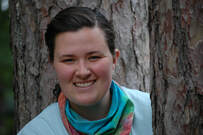 Greetings, families & friends of All Saints! LENTEN SCRATCH-OFF PRAYERS: We still have extra scratch-off prayer sheets in the back of the church for anyone wanting to add in some more prayer during their Lenten season. If your family would like to have one dropped off or mailed out, contact Erin Wolf via call or text at 920-918-4007. YOUTH GROUP: Youth Group has resumed in-person gatherings on Wednesday evenings from 6:30-8:00pm. We are currently meeting in Kemper Hall for space and to cut down on noise for those attending the Wednesday night Eucharist (notice I said, “cut down” and not, “avoid” – if our noises are heard, they will likely be goofy and joyful). Still plan to mask and bring your own water bottle until advised otherwise by parish leadership. ADULTS: We need your help with supervision – while adult leaders are welcome to participate fully in Youth Group, we need other adults in the building/online to meet our safeguarding guidelines. If you are able to help out, please contact me at [email protected] for more info. Thank you! SUNDAY SCHOOL will continue to gather Sundays from 9:30-10:00am via Zoom until the end of April (links can be found in the Weekly Update email). For those in-person time to gather, we are opening up Kemper Hall for kids to run around and hang out for about 30 minutes. SPRING BREAK/EASTER BREAK: There will be no Sunday School on March 27 or Youth Group on March 30 due to Spring Break. Similarly, there will be no Youth Group on April 13 or Sunday School on April 17 due to Holy Week/Easter activities. LET’S CELEBRATE! Beginning in the Easter season (late April), we will start to include a new segment in the newsletter called, “Let’s Celebrate!” This will be an opportunity for children, youth, families, and adults to share some of the good that’s happening. Whether it be a lost tooth, report card, passing a test, achieving a goal, having a performance or game, overcoming an obstacle, etc. – if it’s something folks are celebrating, we want to celebrate with you! Our first edition of “Let’s Celebrate!” (on or around April 27) will highlight joyful news that happened during the Lenten season (because sometimes, joy shows up even in our penitent and contemplative times). Sunday School & Youth Group students are already sharing some great moments, and remember: ALL AGES are welcome & encouraged to participate! You can start sending your stories in to Erin Wolf at [email protected] anytime, and the deadline for the first edition will be Sunday, April 24. CAMP 2022 Dates: All sessions will be held at Waypost Camp in Hatley, WI. Senior (completed grades 9-12): June 12-18, 2022 Middler (completed grades 6-8) & Junior (completed grades 2-5): June 19-23, 2022 Kinder Camp (ages 4-7 & adult): June 23-25, 2022 More info will be coming soon at diofdl.org/camp! And if you’re interested in volunteering at camp as a part of our staff as a counselor, musician, story-teller, etc, keep an eye on our Camp Staff page at diofdl.org/campstaff. 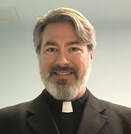 Continuing my series of messages about ministry teams, in this column I hope to begin providing some slightly more concrete details about what I have in mind. In the first two installments, my goal was to express the overall concept and to define some important terms, as well as to give a broad, general description of what I think this system of ministry teams can do for our parish. Today, I invite you to dig in a little deeper with me—below, I have drafted Vision and Mission Statements for teams to oversee each of what I’m calling the “Principal Ministries” of the Church. The idea here is that a vision statement describes what a particular ministry will (with God’s help) “look like” when it’s fully up and running and functioning in a healthy, sustainable manner; a mission statement, on the other hand, denotes the specific work the team will do in order to bring about that vision. That said, one more note about Principal Ministries: Principal Ministries ~ To Preach, Teach, Heal, and Make Disciples I am labeling the ministries of worship, Christian formation, pastoral care, and missions as “principal” because these ministries must be first and foremost in priority for us ~ not so much for us as All Saints Episcopal Church, specifically, but for us as baptized Christians. These ministries comprise the “Gospel imperatives” of preaching, teaching, healing, and making disciples. They encapsulate and embody the very essence of our baptismal covenant, the disciplined work (i.e., discipleship) to which each and every baptized Christian is called when sealed by the Holy Spirit in baptism and marked as Christ’s own, forever. To be clear, these ministries are not things we are commanded to do in order that we be saved. That is not how grace works! No, these ministries are the specific ways we are both inwardly compelled and outwardly called to express our overwhelming gratitude for the grace that God has freely given us in baptism. These four ministry areas, thus, represent the core ~ the very heart and soul ~ of what it means to be Christian. To the extent that any committed community is actively doing these four things, that community is a church, an assembly of the Body of Christ. If ever a church ceases to do these things, it ceases to be a church at that point, no matter what other good works it might support. In other words, these are the ministries that are, for the Christian, not negotiable. These are the “must haves” and “gotta do’s.” That’s why I’m writing about these four first. It’s not that other ministries are not extremely important; it’s that these four are foundational, making all the others possible. To help kickstart this process of (re)organizing ourselves along the lines of the ministry team model, I’m proposing the following vision and mission statements for each of our ministry teams. As a reminder of the difference between the two, a vision statement is oriented towards the future ~ what we would like to see the ministry in question grow into ~ whereas a mission statement seeks to capture what the team in question actually does in the present moment. Put another way, our vision expresses our hopes and aspirations, while our mission defines our work and activities. WORSHIP Vision: Worship at All Saints will be a lively, welcoming, engaging, and communal experience of prayer, praise, and sacraments, rooted in the tradition of the Anglican Communion and The Episcopal Church as expressed in the Book of Common Prayer. Mission: The Worship Ministry Team shall work with and assist the clergy of All Saints in their work of planning services and of deciding the details of weekly, monthly, and seasonal observances for the shared worship of the parish. CHRISTIAN FORMATION Vision: Christian formation at All Saints will provide an integrated program of instruction in the Christian faith, across all age groups, as understood in the Anglican tradition and received by The Episcopal Church, including Scripture and catechism as well as Christian discipleship. Mission: The Christian Formation Ministry Team will work with the clergy and staff of All Saints, under the direction of the rector, to plan and implement Christian education curricula and formation opportunities for the parish, recruit and oversee volunteers for Sunday School and Youth Group classes and events, and foster inter-generational educational and formational activities for the parish. PASTORAL CARE Vision: Pastoral care at All Saints will embody the healing, nurturing, and nourishing presence of Jesus Christ in the lives of our parishioners in times of joy and celebration as well as in times of loss and suffering, in response to Jesus’s call to “feed my sheep” and to “love one another as I have loved you.” Mission: The Pastoral Care Ministry Team will coordinate with the rector/clergy of All Saints to discover and assess the pastoral needs of the congregation, to determine appropriate responses to those needs (i.e., to discern opportunities for lay ministry and specific needs for pastoral care from clergy), to implement those responses, and to recruit, train, organize, and oversee volunteer providers of pastoral care within the congregation. MISSIONS Vision: All Saints Episcopal Church will strive to restore all people to unity with God and each other in Jesus Christ, embodying both within our congregation and in the larger community around us the healing and teaching ministries of Jesus, in order to proclaim the Gospel, to bring others to Christ and make disciples, and to promote truth-telling, justice, and reconciliation amongst everyone. Mission: The Missions Ministry Team will seek out and create opportunities for evangelism within the parish and especially within the larger community, coordinating All Saints Church’s efforts to proclaim and demonstrate, in word and action, the Good News of Jesus Christ. Working with the clergy and staff of All Saints, the team will identify and respond to the needs of the community through events, programs, workshops, etc., that call and invite people to new life in Christ. To conclude for today, if you feel any curiosity about or interest in any of these four major ministry areas, please contact the church office or contact me, directly, and let’s talk about it. We need to recruit members especially for Worship, Christian Formation, and Missions as quickly as we can; Pastoral Care is already up and running, and we need to get the other three going soon, as well. Remember, no particular expertise is required ~ just a sincere desire to live out your baptismal covenant and to grow in your walk with Jesus Christ. I look forward to hearing from y’all! Peace & blessings, Christopher+ 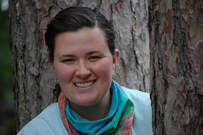 Greetings, families & friends of All Saints! LENTEN DISCIPLINE: SCRATCH-OFF PRAYERS: Youth & families are welcome to join a simple prayer discipline for Lent this year: scratch-off prayers! Each day for 40 days, scratch off a circle to find out which new group of people, places, or parts of creation need prayer for that day. Copies will be available at both the Noon & 6:30pm services for Ash Wednesday. If your family would like to have one dropped off or mailed out, contact Erin Wolf via call or text at 920-918-4007. ASH WEDNESDAY NOTE: Youth Group will be joining the 6:30pm Ash Wednesday service on Wednesday, March 2. If there is time remaining after the service, we will meet in Kemper Hall until 8pm (parents are welcome to join). Masks required. YOUTH GROUP: Starting on Wednesday, March 9, Youth Group will resume in-person gatherings on Wednesday evenings from 6:30-8:00pm. We will continue to work between the Undercroft & Kemper Hall areas for space. Still plan to mask until advised otherwise by parish leadership. ADULTS: We need your help with supervision – while adult leaders are welcome to participate fully in Youth Group, we need other adults in the building/online to meet our safeguarding guidelines. If you are able to help out, please contact me at [email protected] for more info. Thank you! SUNDAY SCHOOL will continue to gather Sundays from 9:30-10:00am via Zoom until the end of April (links can be found in the Weekly Update email). For those who are ready for an in-person time to gather, starting this Sunday, March 6 following the 10:30am service, we will open up Kemper Hall for kids to run around and hang out for 30 minutes. Contact me at [email protected] to sign-up for the Youth Ministry email list. LET’S CELEBRATE! Beginning in the Easter season (late April), we will start to include a new segment in the newsletter called, “Let’s Celebrate!” This will be an opportunity for children, youth, families, and adults to share some of the good that’s happening. Whether it be a lost tooth, report card, passing a test, achieving a goal, having a performance or game, overcoming an obstacle, etc. – if it’s something folks are celebrating, we want to celebrate with you! Reminders will go out during the Lenten season, and you’ll be able to send your stories in to Erin Wolf at [email protected]. CAMP 2022 Dates: All sessions will be held at Waypost Camp in Hatley, WI. Senior (completed grades 9-12): June 12-18, 2022 Middler (completed grades 6-8) & Junior (completed grades 2-5): June 19-23, 2022 Kinder Camp (ages 4-7 & adult): June 23-25, 2022 |
Click here for the latest parish newsletter:
Categories
All
|
